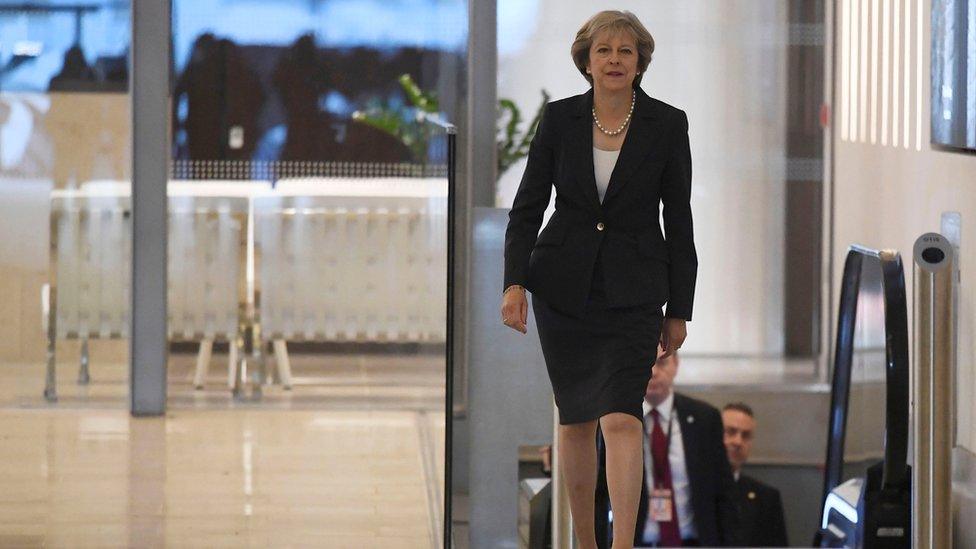Theresa May offers some Brexit answers
- Published

Theresa May likes to talk about "getting on with it" and that is what today's announcements are intended to show.
For more than three months since the referendum she has said little about how she will deliver the vote of the British people.
That much-repeated phrase "Brexit means Brexit" sounded increasingly meaningless as the pressure mounted for her to say when, how and on what terms Britain would leave the EU.
Now we have some answers to the first two questions.
Article 50 will be triggered by the end of March next year beginning the formal negotiations with our EU partners and will have to be completed by the end of March 2019, though the departure date could be later than that.
Key demand
This will leave the prime minister with just over a year to explain and sell the Brexit arrangements to the public before the next election which must be held in 2020.
The repeal of the 1972 European Communities Act will mean that all EU laws will be transferred into UK law and will no longer override domestic legislation. The Great Repeal Bill will be introduced in the Queen's speech next year but it will not take effect until the moment Britain leaves the EU.
It's a key demand of leading Brexiteers and has already been welcomed by former minister Iain Duncan Smith as a big and positive announcement.
This will also go some way towards answering the demands for a vote in Parliament. For a government with such a slim majority that could be tricky.
Negotiating stance
Ministers are already giving explicit assurances that the process will not mean eroding workers' rights - pointing out that in many areas, including annual and parental leave, UK law goes further than the minimum standards offered under EU law.
But the opposition could seek more concrete commitments. Ministers know they cannot expect an easy ride but believe that it would be difficult for any party to vote against a Bill which is a key plank of implementing the will of the British people.
The big remaining question of course is what the government's negotiating stance will be, how it will balance the need to reduce immigration whilst getting a good trade deal with the EU.
The prime minister said she would look at the various ways of bringing in the controls on immigration which the British people want, but would not put her cards on the table.
Until the government sets out its terms for a future deal the arguments and debates will continue over what Brexit will really mean.